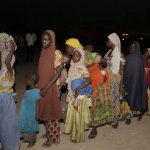The United Nation’s Population Fund or UNPFA has revealed that Nigeria is suffering from a shortage of midwives and that the country needs to invest in the training and recruitment of midwives to close that gap.
Dr Natalia Kanen, the Executive Director of UNFPA made this known in a statement issued in commemoration of the 2023 International Day of the Midwife with the theme ‘Together again: from evidence to reality.’
Dr Natalia said for Nigeria to close the gap on the shortage of midwives by 2030 “about 70,000 more midwives posts are needed but with current estimates, only 40,000 more will be created by 2030. This shortage is particularly acute in Northern Nigeria, where essential maternal and reproductive health care needs are unmet.”
She added that “Around the globe, in countries that invest in a capable midwifery workforce, more mothers and babies survive and thrive. Midwives provide essential information on sexual and reproductive health, including family planning, and help people navigate often-sensitive issues in a variety of contexts, including in humanitarian settings. Midwives are often the only healthcare workers serving people in hard-to-reach places.”
Dr Kenan held that “every woman has the right to lifesaving healthcare” and that “midwives are critical to help make that happen,” adding that on days like the IDM nations should ‘fully acknowledge the skills and contributions of midwives, and invest in them to safeguard life and protect the health and wellbeing of women and newborns and communities at large.”
The United Nations Population Fund (UNFPA) has highlighted a critical shortage of midwives in Nigeria, emphasizing the need for substantial investment in their training and recruitment. Executive Director Dr. Natalia Kanen, in a statement commemorating the 2023 International Day of the Midwife, revealed that Nigeria requires 70,000 more midwife posts by 2030, but current projections indicate only 40,000 will be created, with the shortage being particularly severe in Northern Nigeria.
Dr. Kanen noted that countries investing in midwifery see higher survival rates for mothers and babies. Midwives not only provide essential sexual and reproductive health information, including family planning, but are often the sole healthcare providers in remote areas. She stressed that every woman deserves lifesaving healthcare, and midwives are pivotal in achieving this, advocating for greater recognition and investment in their skills to protect the health of women, newborns, and communities.






